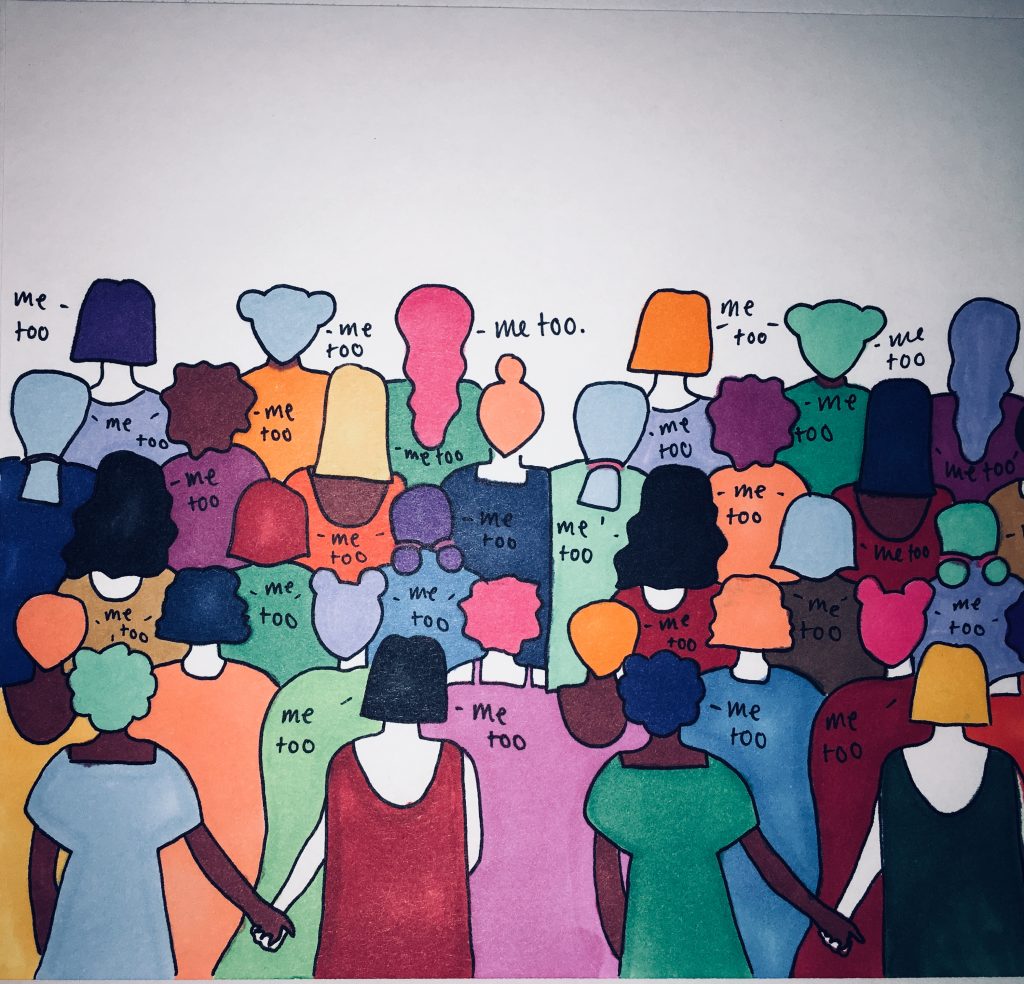Ever since #MeToo went viral in the wake of sexual harassment allegations against Harvey Weinstein, more than 2.3 million women have tweeted the hashtag from eighty-five different countries. The movement is sweeping the world, taking numerous different forms to break racial, economic, and gender boundaries like never before. In Italy, women are rallying behind a version of #MeToo called #QuellaVoltaChe, which translates to “That Time When.” Meanwhile, French women are outing their harassers under #BalanceTonPorc, which translates to “Snitch Out Your Pig.” In Spain, “#YoTambién” is trending, and a direct translation of #MeToo into Arabic is popular in the Middle East and Africa.
About thirty-five percent of women worldwide—roughly 1.3 billion women—have suffered physical or sexual violence at some point in their lives. Even more, one out of every six American women will fall victim to either attempted or completed rape in her lifetime. After remaining silent for years, many of these victims are taking the opportunity to finally speak out and share their stories. With a common goal of putting an end to the violence, they are exposing their oppressors via social media and encouraging others to do the same.
Women’s rights activists cannot stress the importance of the movement enough. An Indian tech writer and novelist, Pankaj Mishra, posted on Twitter, “India’s #Weinstein moment happened last year. Just that we choose to bury our heads in sand. Heard of a man named Mahesh Murthy? #metoo.” Mahesh Murthy is a successful Indian marketer and investor, yet earlier this year a sexual harassment case was registered against him due to complaints from various women.
In the Czech Republic, women’s rights activist Andreea Molocea noted, “What’s happening now is fantastic, and it’s for the first time in our history as women that we can speak the same language of sorrow and despair and of subordination.” In Sweden, the king himself highlighted the campaign’s positive effect, stating, “It’s probably good that you look under old rocks. In the end something good will probably come of this.” In India, Bani Rachel Bali noted, “I haven’t seen a campaign that started in one corner of the world and replicated all across, so to see something like this… I felt the presence of a sisterhood.” This is just to name a few of the countless people who praise the movement, specifically for its ability to unify women all over the world.
#MeToo confirms just how many untold stories there are, and it is important that we continue to foster an environment in which sexual violence victims can speak out without fearing criticism or judgment. The movement reveals the enormity of sexual assault, an issue that has remained under the radar for far too long. After years and years, a previously taboo topic is coming into the light, and people are finally addressing the harsh realities of our society today.
Lara Baskin
staff writer
Graphics: Evie Cullen

